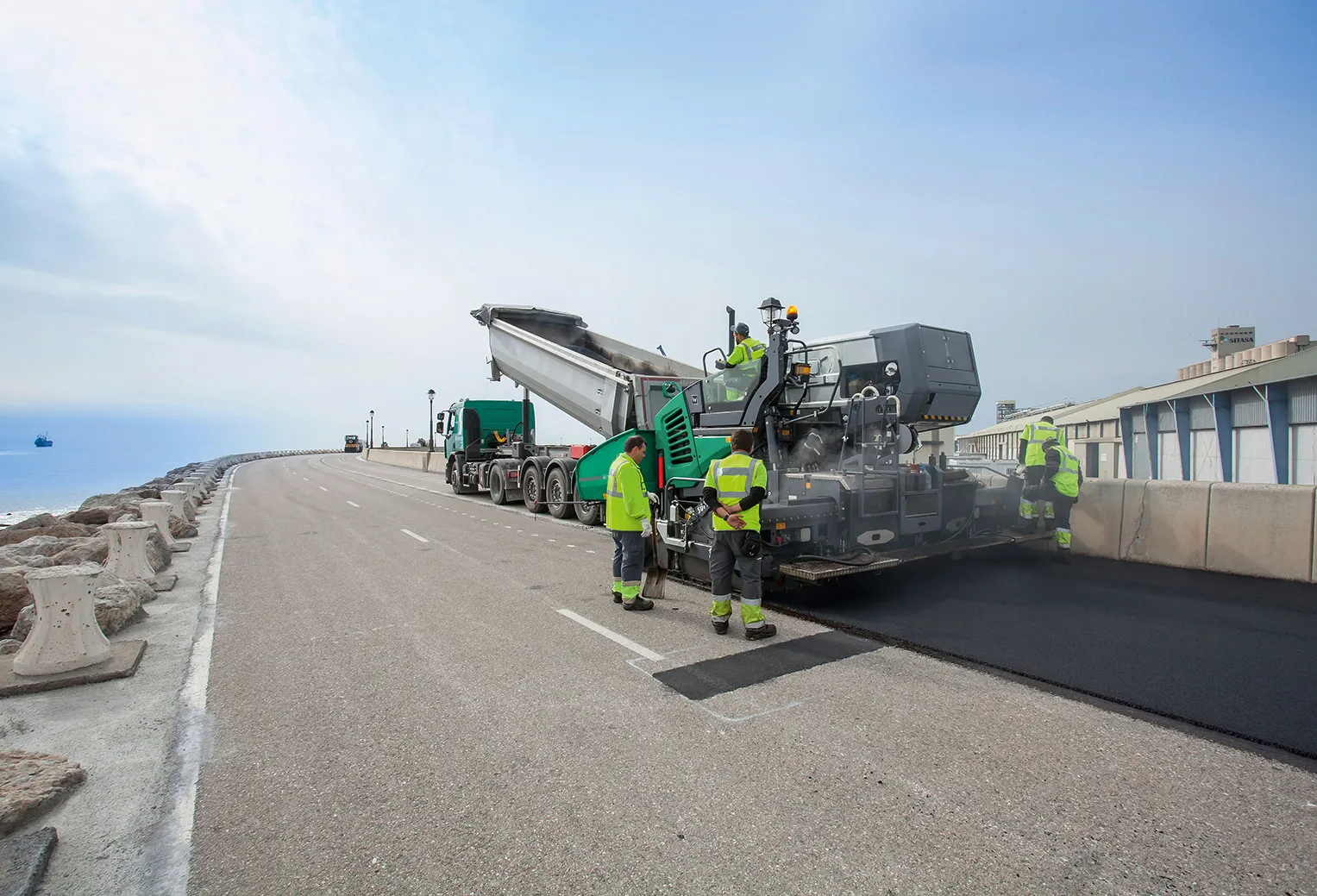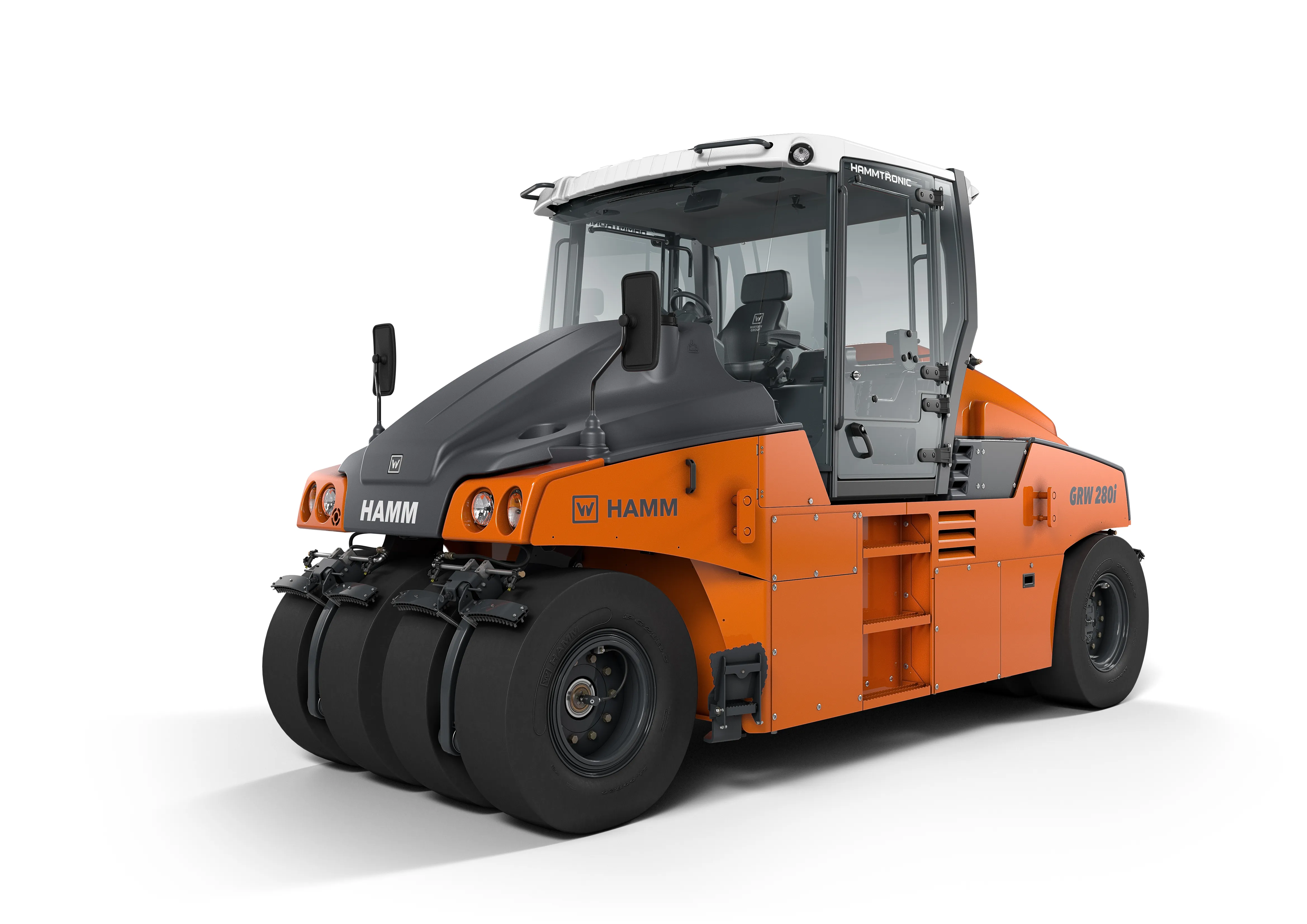Vögele continues to develop its SprayJet technology with the introduction of the new SUPER 1800-3i SprayJet. A key feature is that operation of the spray module has been integrated into the sophisticated ErgoPlus 3 operating system. The module has also been designed as a completely self-contained functional unit. It features a modular design that makes the system simpler to service and allows it to be used both as a spray paver and as a conventional asphalt paver. The paver has a maximum spray width of 6m.
January 6, 2017
Read time: 4 mins

The copmany claims that this package is suited for paving thin layers hot on spray seal or tack coat. The newly developed SprayJet module is said to be an economical and clean alternative wherever emulsion is sprayed before paving with asphalt.
The module comes with an insulated emulsion tank with a capacity of 2,100litres and that can be increased to 7,100litres using an optional additional tank. The integrated electric heating (2 x 7kW) ensures that emulsion is maintained at the ideal temperature for spraying. And a heated emulsion pump circulates the emulsion in the tank, ensuring that it is homogenous.
The SUPER 1800-3i SprayJet has five spray bars. The front spray bar has six spray nozzles and is located between the machine's crawler tracks behind the push-rollers. An articulated spray bar on each side of the paver has seven nozzles/side. And a short spray bar with two nozzles is provided right behind each crawler track. This arrangement allows full coverage of the existing surface with emulsion, even when the pave width varies. The rate of spread can be selected accurately from 0.3-1.6kg/m². The SprayJet nozzles operate in pulsed mode and the frequency of these pulses is adjusted automatically as a function of the selected rate of spread, pave speed and pave width. This allows the surface to be completely covered with a uniform film of emulsion, without overlaps. Emulsion is applied at a low spray pressure of no more than 3bars, allowing even spraying.
The new spray paver also includes all the features of the Dash 3 paver generation, such as the advanced EcoPlus package that lowers fuel consumption and noise levels as well as the AutoSet Plus functions to allow quick and safe relocation of the paver on site. This last also makes it possible to store individual, frequently recurring paving settings.
The machine has the ErgoPlus 3 operating system and important spraying functions are integrated into the large colour display on the console. Essential screed data is displayed on the two ErgoPlus 3 screed consoles. Hydraulic adjustment of the crown can now be carried out using the ErgoPlus 3 screed consoles. Operation of the SprayJet module has been integrated into the ErgoPlus 3 operating concept. All functions for preparation, spraying and cleaning are selected and started using the touchscreen. Depending on the installed nozzle size and the selected rate of spread, the maximum pave speed is calculated by the SprayJet module's control unit and displayed on the ErgoPlus 3 paver operator's console to ensure uniform application of emulsion.
The machine has two screed options are available, the AB 500 and AB 600. Either of the extending screeds handles pave widths up to 6m. AB 600 comes with a basic width of 3m and extends hydraulically up to 6m. AB 500 builds up to its maximum width of 6m with additional bolt-on extensions (of 750mm). The widths of the screeds are limited electronically to a maximum of 6m. As a conventional paver without spray function it can pave widths of up to 9m with the AB 600.
Either screed is available in TV version (with tamper and vibrators) or in TP1 version (with tamper and one pressure bar). Like all VÖGELE screeds, the AB 500 and AB 600 Extending Screeds also feature electric heating.









